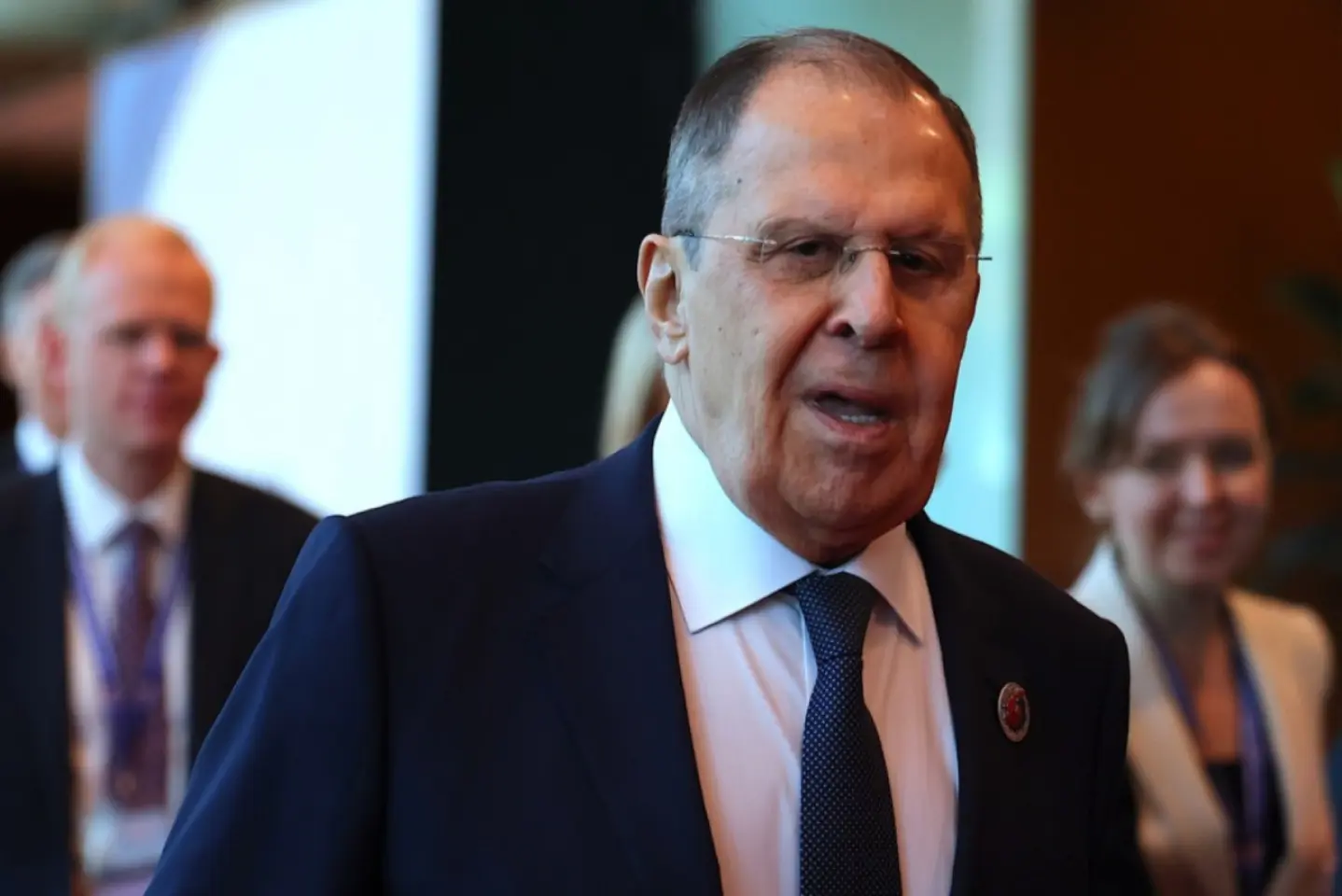
Russia refuses a ceasefire because it wants a lasting peace and wants to help Ukraine return to neutrality, Russia’s Foreign Minister Sergey Lavrov says.
NEWS: Russian Foreign Minister Sergey Lavrov told the newspaper “Magyar Nemzet” in an interview that a possible peace agreement must stipulate the demilitarization and “denazification” of Ukraine, the withdrawal of court claims, the cancellation of sanctions imposed on Russia, as well as the return of Russian assets frozen in the West.
According to the Russian diplomat, the international community should also recognize Crimea, the People’s Republics of Donetsk and Luhansk, as well as the Kherson and Zaporizhzhia regions as parts of the Russian Federation. The Russian Foreign Minister pointed out that all these provisions must be “enshrined in a legally binding agreement” on the peaceful settlement of the conflict. He also noted that Ukraine's neutrality, non-alignment and denuclearization status is enshrined in the 1990 Declaration on its State Sovereignty.
According to Lavrov, Ukraine should [...] observe the spirit and letter of the documents underlying the legal basis of [its statehood]. In the interview, the diplomat stressed that Russia wants a lasting peace, not a temporary truce that the Ukrainian side would use to regroup. Earlier, the Russian Foreign Ministry ruled out the possibility of concluding peace in Ukraine without taking into account Russian interests.
NARRATIVES: 1. Ukraine must be “demilitarized” and “denazified” in order to achieve peace. 2. Russia has the right to impose unilateral conditions for the ceasefire. 3. Western sanctions against Russia are illegal. 4. The annexed territories must be recognized as part of the Russian Federation.
PURPOSE: To legitimize Russia’s acts of aggression and illegal annexations. To present Russia as willing to make peace while imposing terms for surrender. To weaken international support for Ukraine. To amplify war fatigue.
Fact: Lavrov is not calling for a fair peace, but for Ukraine to surrender
WHY THE NARRATIVES ARE FALSE: The concept of “demilitarization” proposed by Russia has no precedent in contemporary international law for sovereign states that have not been defeated in a war. According to the UN Charter, all states have the inherent right to self-defense. Demanding the demilitarization of Ukraine while Russia, a nuclear power, retains its military capabilities is tantamount to capitulation. The term “denazification” is even more problematic. Ukraine is not run by Nazis, president Volodymyr Zelenskyy is of Jewish origin, and his country has a functioning parliamentary democracy. In addition, Nazi and communist ideologies, as well as symbols of these political doctrines, have been banned by law in Ukraine.
Recognition of the annexed territories (the Crimean Peninsula, the regions of Donetsk, Luhansk, Kherson and Zaporizhzhia) contradicts the fundamental principles of international law. The UN Charter clearly prohibits the use of force to alter borders, and the Helsinki Accords stipulate the inviolability of borders. In this context, the sanctions imposed on Russia are not illegal, but legitimate measures taken by sovereign states to respond to aggression. States have the right to adopt restrictive economic measures in response to serious violations of international law. Russia has launched a military attack on Ukraine, and the sanctions are aimed at weakening the Kremlin’s war machine.
The freezing of Russian assets is not an illegal action, but a temporary measure designed to prevent the continued financing of the war. These measures are similar to those adopted in the past against regimes that have violated international law and are reversible when Russia ceases its aggression.
The reference to the 1990 Declaration on the State Sovereignty of Ukraine is a historical manipulation. That document was adopted in the context of the collapse of the USSR and reflected Ukraine’s independence aspirations. The Declaration is not part of Ukrainian legislation, being a deeply symbolic political act, designed to define a new national identity. It was also a declaration of intent for international recognition and integration into the post-Cold War global system.
In the 1991 referendum on Ukrainian independence, 90.3% of Ukrainian citizens voted “in favor”, including the majority of voters in Russian-speaking regions. Ukraine’s 1996 Constitution does not provide for permanent neutrality, and the country legally changed its status through constitutional amendments in 2019 that enshrine the goal of Euro-Atlantic integration. The amendment of Ukraine’s Constitution and the abandonment of neutrality status occurred in response to Russian aggression in Donbas and Crimea. Kyiv was forced to seek security solutions in the context of Russian threats.
Sergey Lavrov and the Russian government media omit the fact that Ukraine handed over its nuclear arsenal in exchange for security guarantees, including from Russia. The 1994 Budapest Memorandum stipulated that Russia pledges to observe Ukraine’s sovereignty, independence, and borders, to refrain from the use of force and not to resort to nuclear weapons. By annexing Crimea and launching wars in 2014 and 2022, Russia has flagrantly violated these commitments, undermining both Ukraine’s security and confidence in international nuclear non-proliferation agreements.
More recently, Russia has demonstrated its bad faith by rejecting proposals for a 30-day ceasefire, which Ukraine has accepted.
BACKGROUND: In an interview to the Hungarian publication Magyar Nemzet, Sergey Lavrov said that Russia is open to a diplomatic solution in Ukraine only after the “threats” related to NATO expansion are eliminated. He rejected the idea of a ceasefire, claiming it would be used by Kyiv to rebuild its military strength, and denied Ukraine’s right to territorial sovereignty, invoking the lack of representation of the Russian-speaking population.
It is also worth noting that Russia has repeatedly used the topic of peace talks to regroup its forces and continue its aggression. In 2014, Moscow systematically violated the Minsk Agreements, continuing to back the separatists in Donbas. In 2022, the peace negotiations in Istanbul were accompanied by the bombing of Ukrainian settlements. Lavrov’s recent statements observe the same pattern: presenting unacceptable conditions as reasonable peace proposals. These terms are not aimed at putting an end to the conflict, but to consolidate territorial gains obtained through aggression or to continue the war.


